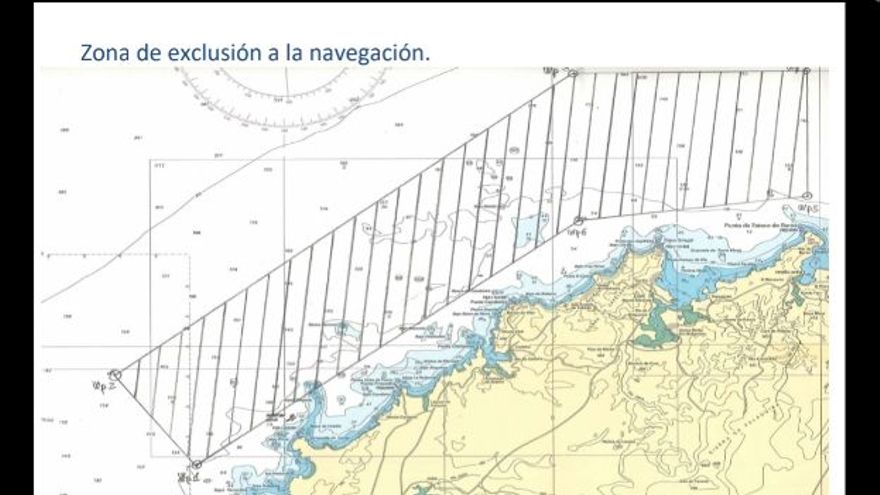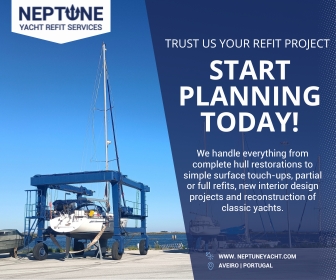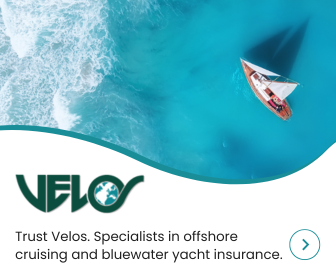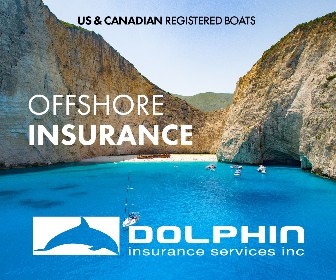NW Spain: Government Introduces a No-Sailing-Zone following 29 Incidents Between Sailboats and Killer Whales
Government and environmentalists can’t explain why killer whales are playing with sailboats off the coast of Galicia. Twenty nine contacts with killer whales have been registered by sailboats in the coastal region of NW Spain between Ferrol and Ria de Ortigueira since August 10th. In an attempt to protect both sailors and orcas, a no-sailing zone has now been introduced.
Published 5 years ago
Biologists are unable to give an explanation for what has been happening off the coast of Galicia (NW Spain) in recent weeks. Several groups of killer whales have been seen frequently a few miles from the coast and one of the groups has been especially insistent in establishing contact with sailboats transiting through these waters.
As a result of the 29 encounters recorded since August 10th, half a dozen boats have had to call on rescue services after the whales broke their rudders.
Interactions with killer whales have affected, above all, medium-sized sailboats, with a length equal to or less than 15 meters; all the encounters with the killer whales took place between 2 and 8 nautical miles from the coast and the sailing speed ranged between 5 and 9 knots, either exclusively by sail or by sail and motor.
NW Spain – No go zone
The Government has decided to take action and as a first step is limiting sailing in the area. The General Directorate of the Merchant Marine has issued a resolution limiting “the navigation of sailing vessels of less than 15 metres for a period of one week in the adjacent maritime space between Cabo Prioriño Grande (Ferrol) and Punta de Estaca de Bares (Ria de Ortigueira).” The measure aims to “guarantee the integrity of the people and the orcas themselves” and could be extended to other territories depending on the evolution of the three groups of cetaceans that have remained in Galician waters and whose number of members exceeds a dozen.


- Exclusion zone for navigation by contact with killer whales.
Before deciding to limit the traffic of sailboats, the Spanish Government tried to understand what was happening by communicating with the International Whaling Commission. The body in charge of protecting large cetaceans replied that they had never before received news of encounters between orcas and sailboats, in which the animals sought interaction to the point of pushing the boats and breaking important gear necessary to navigate safely. There is no action protocol based on previous experiences.
As the biologist Ruth Esteban explains, what is happening is “very exceptional”:
“In general the whales approach the stern of the boat silently, and then begin to inspect the vessel focusing on the movable parts, like the rudder”. For biologists, the ring-leaders of the group are the youngest specimens of one of the three groups that have been sighted in recent weeks in Galicia. Esteban continues: “they are very curious juveniles and it seems that the rudders of the boats have caught their attention. We have videos in which a sailboat rotates almost 180 degrees”.
Esteban participated this Tuesday in a video conference convened by the NGO Coordinator for the Study of Marine Mammals (CEMMA) and in which the media were invited to participate. In the joint Spanish/Portuguese meeting, a call was made cautioning the media to focus information “on knowledge and conservation” instead of creating “animosity” towards orcas. Biologist of the Ministry of Ecological Transition, Elvira García, reminded everyone that “this species is classified as vulnerable in the catalog of threatened species and Spain has specific protection standards for them.”
Why have the Killer Whales changed their behavior?
Biologists consider various theories about the behavior change of killer whales. Their passage along the Galician coast is common, but they have never stayed so long before or interacted with humans.
The biologist Cristina Martín has spent years studying these large cetaceans that every year, before going north, land in the Strait of Gibraltar to fish for tuna. According to their observations, the killer whales got used to swimming near the fishing boats, from which they snatched fish while the fishermen tried to bring them on board with their rods. According to Martín, the animals discovered that with this type of misguided fishing they saved the effort of chasing the tuna swimming for long distances.
The lack of noise is also considered as one of the reasons for the change in behavior. The Covid-19 confinement introduced a silence in the waters in which the orcas co-existed with the boats. As Ruth Esteban relates, “the animals acoustically had to notice the confinement. It must have been quite a silence for them. Fishermen and recreational boats stopped their activity and that they must have noticed, but it is difficult to interpret”. Scholars do not know how to explain whether the curiosity about ships in the youngest specimens may be related to the absence of ships at sea during the harshest months of the pandemic.
Another undeveloped theory has to do with something akin to revenge. The team that works in the group created to explain the encounters between killer whales and sailboats, has verified that of the three groups of cetaceans that have remained in Galician waters, only one interacts with boats. Two specimens of killer whale belong to this group, which the researchers have been able to photograph with large injuries, probably caused by contact with ships. If the encounters with sailboats are a reaction to a bad experience, it is something that biologists do not dare to confirm.
Of all the hypotheses on the table, the most repeated is the one that refers to the game as the main reason for these encounters with sailboats. Why some groups of killer whales play and others do not, is something that is still being studied.
Related News:
- Atlantic Spain and Portugal: ORCA Interaction Advice to Yachts – Noonsite (April 2021)
- British sailboat saved from the attacks of the killer whales by stopping the boat – La Voz de Galicia (25 September, 2020)
- Sailing boats of 15 meters in length or less will not be able to sail between Cabo Prioriño Grande and Punta de Estaca de Bares for a week – Spanish Government Press Release
- Government and environmentalists try to explain the unknown of the killer whales that play with sailboats off the coast of Galicia – El Diario (22 September)
- Sailboat attacked by killer whales: “Some were hitting from the stern and others from the starboard. They cornered us » – La Voz de Galicia (21 September)
- Atlantic Spain and Portugal: Orcas Ramming Yachts – Noonsite (14 September)
……………………………………………………………………………………………………………………………………….
Noonsite has not independently verified this information.
Related to following destinations: A Guarda, Aviles, Bilbao, Burela, Corcubion, Ensenada de Santa Marta, Finisterre, Gijon, Guetaria, Hondarribia, La Coruna, Mutriku, North West Spain, Ria de Arousa, Ria de Camarinas, Ria De Cedeira, Ria de Muros, Ria de Pontevedra, Ria De Ribadeo, Ria de Vigo and Baiona, Ria De Viveiro, San Sebastian, Santander, Spain
Related to the following Cruising Resources: Atlantic Ocean East, COVID-19, Environment, Orcas and Yachts, Routing







Is there any update on the orca situation off Spain? Have they moved on?
Mitma extends the restriction on sailing to sailboats from Finisterre to Punta de Estaca de Bares to prevent incidents with orcas (10/01/2020)
The decision is legally supported by two resolutions: one, from the Maritime Captaincy of El Ferrol, which extends by one more week the prohibition to sail medium-sized sailboats between Punta de Estaca de Bares and Cabo Prioriño, and another, from the Maritime Captaincy of A Coruña, establishing for the first time the restriction in the same terms from Cape Prioriño to Cape Finisterre.
Read more at https://www.mitma.gob.es/el-ministerio/sala-de-prensa/noticias/jue-01102020-0806
A British sailboat on passage to A Coruña encountered three killer whales off Fisterre last Tuesday. This area is not affected by the restrictions issued by the General Directorate of the Merchant Navy for the coastal strip between Prioriño Grande and Estaca de Bares. As with other yachts, the whales started to interfere with the rudder, so much so the skipper had to release the wheel to avoid being injured. After making contact with the Fisterra Rescue Center, they recommended that the skipper stop the boat completely. After a quarter of an hour, the orcas lost interest completely. It seems that orcas are more persistent the more resistance they encounter. Read the full story at https://www.lavozdegalicia.es/noticia/maritima/2020/09/25/velero-britanico-salva-embates-orcas-parar-barco/0003_202009G25P31991.htm (25 September).